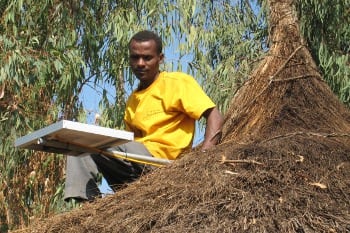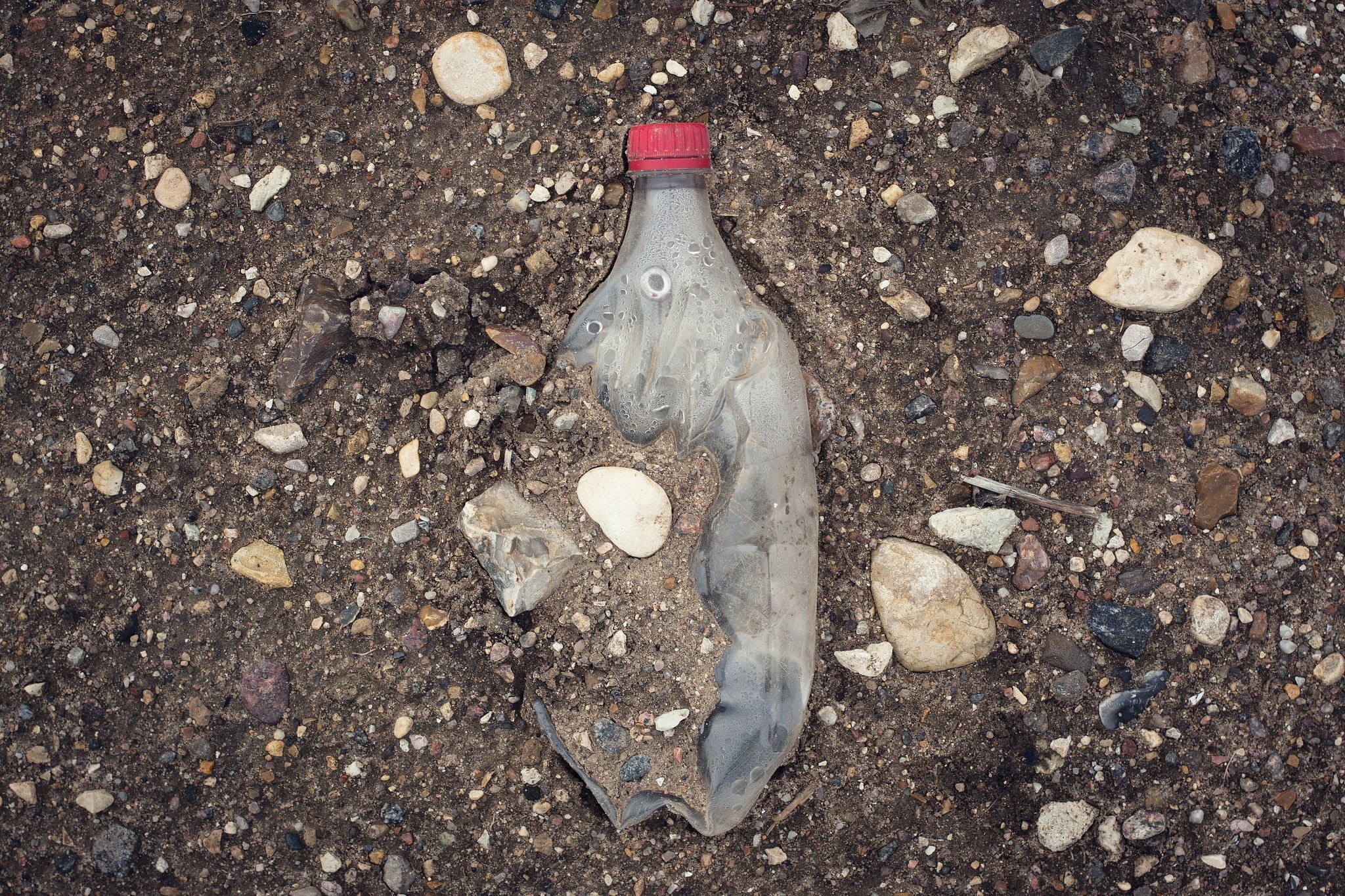
The solar panels are easily installed on thatched roofs like this one in Ethiopia. Image courtesy of StS International
Two-watt solar panels jut incongruously from thatched roofs in a rural Ethiopian village, dangling cords into the rooms below to charge batteries and power banks of LEDs. The lights replace smoky kerosene lanterns that, when used indoors, can lead to lung cancer and other diseases. The systems are cheaper than kerosene, and will likely add months or years to the lives of the families that live there. This blend of technologies, solar with prehistoric architecture, puts electricity safely into these homes for the first time. Families can now charge cell phones right where they live, which is a luxury in a country where only 2.2 percent of the rural population is on the grid.
These are Sun Transfer’s award-winning solar systems, one of five products that won top honors at the World Bank’s Lighting Africa program in 2010. Lighting Africa rated lighting systems on safety and affordability, and then worked with the companies that make them to help them reach the millions of off-grid Africans who need these solutions. This is part of our coverage of the program, following up with some of these companies one year later. Earlier, we looked at Barefoot Power’s solution, solar-powered desk lamps.
Sun Transfer, based in Switzerland, is a for-profit business that is owned by a non- profit organization called the Solar Energy Foundation, based in Germany. Together, they are parts of an unusual hybrid of a charity and businesses called StS International. The StS Network includes other businesses and entrepreneurs in Africa and Southeast Asia that sell, maintain and teach people about solar products.
Holistic sales
The organizations make a commendable commitment to the people they work with, including those who buy their systems. A sale includes an education on using solarsystems in the home and lifetime technical support. “We sell our solar products only in areas where we can guarantee their maintenance and after-sale service,” York Ditfurth, the Solar Energy Foundation’s general manager, told E4C.
Phones, TVs and batteries
SunTransfer is not limited to lights. The company and its partners sell a range of products that include a phone-charging box with outlets for three phones, a low-energy multimedia station that combines a personal DVD player and LCD screen with a boombox, and a low-energy TV.
As part of its educational outreach, the Solar Energy Foundation produces a valuable resource for solar-power enthusiasts, Sun Connect, a quarterly magazine on rural PV electrification.
Lighting Africa, one year later
In the year since Lighting Africa, the main product upgrade that the company has made has been in its batteries: from lead-acid to nickel-metal hydride. It optimized some of the electronics and improved the lights’ durability. Also in the past year, the company has also begun selling products in Kenya and the Philippines, Ditfurth says.
This Ashden video provides a close-up look at the foundation’s impact in Ethiopia.

